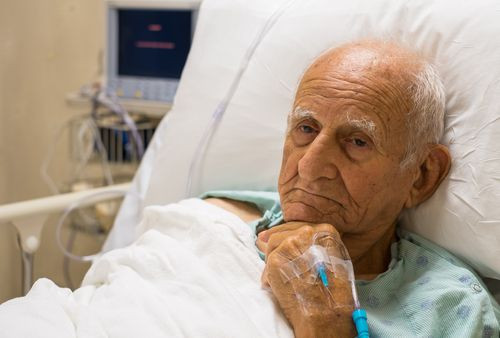Anesthesia Personnel Need To Be More Aware Of The Risk Of Postoperative Cognitive Side Effects In Elderly: Survey

The prospect of not waking up from a drug-induced coma after an operation can be a scary thought for several of us. While advancements in the science of anesthesia have ensured that the number of anesthesia-related fatalities has significantly reduced, new research shows that awareness about the risks of cognitive side effects following surgery is still lacking among anesthesiologists.
With more and more of the elderly going under the surgeon’s knife, postoperative care specific to them is of paramount importance. Neglect in recognition and treatment of postoperative cognitive side effects or delirium results in longer hospitalization and decline in the overall quality of an elderly patient’s life. A nationwide survey of Swedish anesthesiologists and nurse anesthetists has found there is low awareness of the risks of cognitive side effects following surgery and only around half of the respondents used depth-of-anesthesia monitors. The study is published in the journal Annals of Medicine and Surgery.
An anesthetic focuses on reducing cardiovascular and pulmonary risks and managing postoperative pain, nausea, and vomiting. But what is sorely neglected is the post-surgery cognitive side effects, a factor that can have major implications for the patient.
"We found that Swedish anesthesia personnel viewed risk assessment, prevention, and handling of postoperative delirium and postoperative cognitive dysfunction of rather low importance. Protocol and/or standardized routines were only rarely implemented," said senior investigator Professor Jan G. Jakobsson, from Karolinska Institute, Stockholm, Sweden in a statement.
The risk-factors for the development of postoperative cognitive impairments are patient- and surgery-specific. These impairments may arise immediately after surgery such as the short-term postoperative emergence agitation (EA) or a couple of days after, like postoperative delirium (POD). Postoperative cognitive dysfunction (POCD) is another type that generally starts during the first week after surgery, but may last for a month.
All these conditions can be extremely distressing and can affect cognition in terms of memory, comprehension, and attention. But in spite of their prevalence they have not received enough attention from anesthesia personnel.
The researchers wanted to gauge the practice of risk assessment, diagnosis, and management of postoperative cognitive side effects, and the use of EEG-based depth-of anesthesia monitoring (DOA) among anesthesiologists. To do this, they sent a web-based validated questionnaire to over 2,500 Swedish anesthesiologists and nurse anesthetists.
The questionnaire consisted of three sections covering subjective preferences, routines, and practices related to the perioperative handling of EA, POD, POCD, and awareness. Among the 52 percent who responded, most considered the risk factors for developing postoperative delirium to be the least important. The risk of awareness with recall (when patients are able to recall the surgery) and cardiac and pulmonary risk were considered of high importance during the preoperative assessment.
Previous surveys of anesthetic practice in Sweden have showed that protocols and guidelines are strictly followed for perioperative management and most hospitals have the EEG-based DOA monitoring system where anesthesia is modified to suite individual patients to aid their recovery and reduce their risk for awareness while under anesthesia.
But the current research shows that though the monitors were used in half of all departments, their frequency of use varied. "Respondents were overall quite skeptical about the value of EEG-based DOA monitors,however their use in patients at risk for awareness was more positive among the nurse anesthetists than the anesthesiologists," Jakobsson said.
He blames this attitude on the negative stance that the Swedish Council on Health Technology Assessment have taken on the use of these devices.
"The results show there is a need to improve the knowledge of anesthesia personnel about risk factors, prevention and management of postoperative cognitive side effects," Jakobsson added.
Source: Jildenstål, P, Rawal N, Berggren L, Jakobsson J. Postoperative management in order to minimize postoperative delirium and postoperative cognitive dysfunction. Annals of Medicine and Surgery. 2014.



























